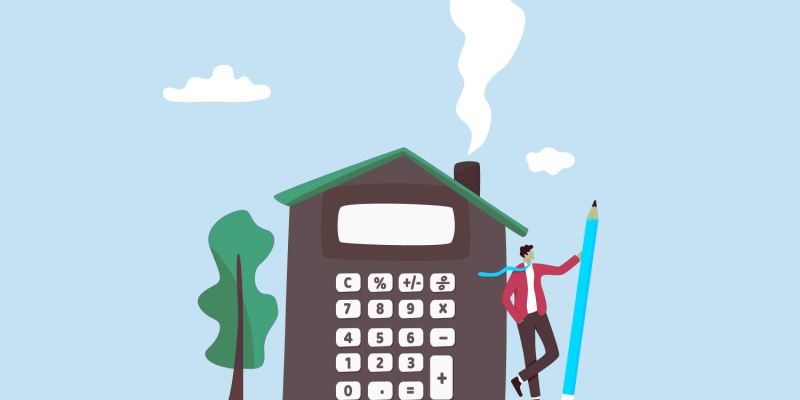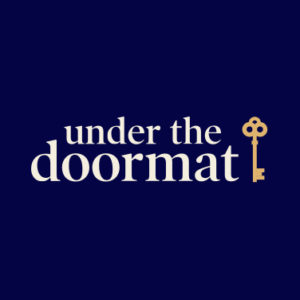The Importance of Bookkeeping for Short Term Rentals and FHLs
31st October 2023

When you run a Furnished Holiday Let (FHL), or a short-term rental property business, keeping on top of your books will help you manage the income and expenses generated by your business efficiently. Here, our friends at luxury property rental company Under The Doormat share their top tips.
There are several systems you can use and implement to ensure that your books are always up to date. Although many property owners do hire bookkeepers on a short-term basis, doing bookkeeping for your own business is actually a relatively easy undertaking if you have the right software. When we work with our clients renting out properties, here is the advice we give them.
Why do short-term rental or FHL businesses need bookkeeping systems?
Having a short-term rental business is an exciting and a great way to generate income, especially if you own a property that people will love. It does, however, also mean that there are usually multiple transactions that make up your overall income. You also have to ensure that you remain accurate in your reporting to keep track of refunds, cancellations, security deposit payments or deductions, and overall expenses for property maintenance. Therefore, having bookkeeping systems in place is vital for managing the property’s finances.
That’s why so many property owners prefer to use bookkeeping software or hire a professional bookkeeper to do this type of work for them. Property owners can also partner with professional property management companies that organise bookings, accept payments, and ensure that all bookings are financially square and complete. Here at Under the Doormat, we provide property owners with a team of professional property and portfolio managers who will assist with property finances.
Our 5 top tips to keep you on top of your rental’s accounts
Keeping up to date with your bookkeeping can seem daunting if finances are not necessarily your thing. But, in reality it is quite an easy process if you follow a few simple bookkeeping tips. Below are a few things that we recommend our clients do to ensure that your property’s bookkeeping is up to scratch.
1. Do a little each day
One of the main mistakes that property managers make is leaving all their finances to the last minute and only conducting reconciliation activities when they absolutely need to. For example, when they must file for taxes or produce financial reports to a board of investors. When bookkeeping is left for the last minute, it becomes increasingly more challenging to take on, which is why so many people are averse to doing it themselves.
Doing small bookkeeping activities every day or even once a week can help you ensure that your accounts are up to date at all times. When you do bookkeeping regularly, it makes it a lot easier to keep up to date with your transactions and accounts.
2. Use accounting software
One of the best things to do if you are managing the property’s finances yourself is to make use of accounting software. These systems are easy to use and will automatically classify transactions in line with your budget structures. Accounting software allows you to create your own codes, which will help with transaction tracking and overall account recon, helping you to produce accurate financial reports for your business. When speaking to Integro Accounting, we know they recommend FreeAgent to their clients, which is easy to use and compatible with their accountancy service.
3. Allocate budgets
When you keep track of your business’s transactions, it allows you to produce a budget that ensures you allocate sufficient funds to your short-term rental expenses. Expenses can be anything from maintenance, insurance, marketing, or cleaning. Having a budget is important for ensuring that you do not overspend in any of these areas, eating into your business’s profits. Having an accurate overview of your account status can help you implement accurate budgets as you assess financial patterns over an extended period. For example, if you can see the average amount per month you spend on repairs and cleaning, you will be able to adjust your nightly rates accordingly to cover these expenses.
4. Keep personal and business transactions separate
Most property owners will have a separate bank account for their short-term rental business. This helps to keep personal and business transactions separate, which is ultimately more beneficial for tax purposes and for establishing short-term rental property as its own business entity. This will also help you to establish business credit for your short-term rental business, allowing you to make use of business banking products and solutions. Having a separate account will also help contribute to overall business credibility as you become more established in the industry.
5. Make sure you keep receipts
Keeping track of transactions is one thing, but you also need to ensure that all expenses are accounted for by ensuring that there is a receipt to match the transaction. This will help ensure that your accounts are fully reconciled and will also make it easier to categorise transactions in your business account. If you make use of accounting software, you can upload receipts to match transactions and then generate a full reconciliation statement, which you can use for financial reports.
By following our tips for your short-term rental property, you can maintain up-to-date books and keep track of the income and expenses generated by your property. This will help you to produce accurate budgets and ensure that your nightly rates are enough to cover your property’s overheads and retain profitability.
If you are interested in letting your own property, or have any questions on how we at Under the doormat can help, please call us on 0207 9521650 visit our website.

